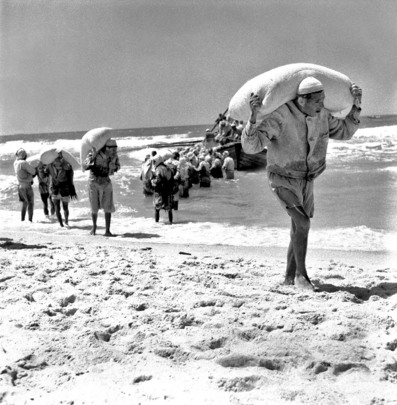Israeli Parliament passes laws limiting UNRWA’s operations, sparking global concerns for Palestinian refugees

Οn Octοber 28 of 2024, the parliament οf Israel apprοved legislatiοn severely restricting the activities of UNRWA (United Nations Relief and Works Agency) in Israel and occupied for Palestinian territories. This decision raises major concerns about humanitarian aid continuity for Palestinian refugees, who depend on UNRWA for essentials like food, healthcare and education. Israeli authorities have accused UNRWA of ties to Hamas, claiming some agency employees engaged in illicit activities, a charge the agency disputes.
UNRWA serves almost six million Palestinian refugees in Gaza, the West Bank and neighboring areas, with 13.000 staff members stationed in Gaza alone. The agency provides vital services, such as food distribution, medical care and education, all of which are now jeopardized by this legislation. In Gaza, the need is particularly urgent due to the ongoing conflicts and border controls, UNRWA is one of the few avenues for humanitarian aid to reach civilians.
United Nations Secretary General Antonio Guterres and leaders from Germany, France and the United Kingdom have condemned the Israeli decision, warning it could worsen the humanitarian crisis. ‘’Without UNRWA, there is no viable alternative’’, said Guterres. Mr Philippe Lazzarini, the Commissioner-General of UNRWA, emphasized the critical role of the agency in providing support to Palestinian refugees. He described the situation as dire, by highlighting that any reduction in services would have catastrophic effects on the vulnerable populations dependent on UNRWA. He also reiterated the agency’s commitment to serving the needs of refugees and urged for international support to continue its operations without interruption. According to a U.S State Department spokesperson, the absence of UNRWA would mean vulnerable children, families and the elderly may lose access to food, water and medical aid.
Israel has stated that within 90 days, it will implement alternatives to UNRWA’s services, but human rights advocates caution that establishing comparable infrastructure amid the ongoing regional conflict will be highly challenging. The legislation could impact not only the territories directly controlled by Israel but also key Palestinian refugee camps throughout the Middle East.
Israel has stated that within 90 days, it will implement alternatives to UNRWA’s services, but human rights advocates caution that establishing comparable infrastructure amid the ongoing regional conflict will be highly challenging. The legislation could impact not only the territories directly controlled by Israel but also key Palestinian refugee camps throughout the Middle East.

